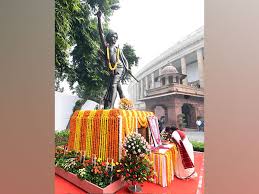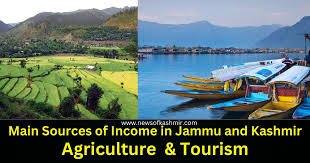Sarai Kale Khan Chowk Renamed to Bhagwan Birsa Munda Chowk
Introduction: Renaming of Sarai Kale Khan Chowk
The Sarai Kale Khan Chowk, a prominent intersection located in the heart of Delhi, has been officially renamed to “Bhagwan Birsa Munda Chowk.” This move is part of the Indian government’s initiative to honor significant historical figures and freedom fighters. Birsa Munda, a tribal leader, is remembered for his brave resistance against British colonial rule and his efforts to safeguard tribal land rights.
Who Was Bhagwan Birsa Munda?
Bhagwan Birsa Munda was a revolutionary and tribal leader from Jharkhand who played a crucial role in the Indian independence struggle. He led the Munda Rebellion against the British in the late 19th century and became an icon for the tribal communities in India. His vision was to protect tribal lands, culture, and way of life from the British exploitation. Birsa Munda’s legacy as a freedom fighter continues to inspire millions.
Significance of the Renaming
Renaming Sarai Kale Khan Chowk to Bhagwan Birsa Munda Chowk is a symbolic gesture to honor the contributions of tribal leaders to India’s independence. The renaming underscores the government’s commitment to preserving the history and legacy of unsung heroes who fought for India’s freedom. The new name not only commemorates Birsa Munda but also highlights the importance of tribal contributions to the nation’s growth.
Implications of the Renaming for Students and Citizens
For students preparing for government exams, this renaming is relevant as it brings focus to India’s freedom struggle and the role of tribal leaders. The story of Birsa Munda is crucial for various competitive exams, including those for civil services and other government positions. It also provides an opportunity to discuss the larger narrative of indigenous rights and freedom movements in India.

Why This News is Important:
Honoring Tribal Freedom Fighters
The renaming of Sarai Kale Khan Chowk to Bhagwan Birsa Munda Chowk is a significant step towards acknowledging the contributions of tribal leaders to India’s freedom struggle. By highlighting Birsa Munda’s achievements, the government has shed light on the often-overlooked role of indigenous communities in shaping India’s history. His legacy as a leader of the Munda Rebellion is now being recognized on a national platform.
Educational Value for Government Exam Aspirants
This renaming serves as a timely reminder for students preparing for government exams about the rich diversity of freedom fighters across India. Understanding the struggles of tribal leaders like Birsa Munda broadens the scope of historical knowledge, offering students a more comprehensive understanding of India’s independence movement. It is especially relevant for exams that include topics like Indian history, national movements, and tribal issues.
Encouraging Tribal Rights Awareness
Birsa Munda’s contribution goes beyond his role in the independence movement. His focus on protecting tribal land and culture serves as a foundation for discussions around tribal rights and development. The renaming reflects an effort to revive discussions on tribal welfare and the importance of safeguarding indigenous communities in contemporary India.
Historical Context: Background Information on Bhagwan Birsa Munda
Birsa Munda’s Rebellion Against British Rule
Bhagwan Birsa Munda was born in 1875 in the region now known as Jharkhand. He is renowned for leading the Munda Rebellion, also called the Ulgulan, which took place from 1899 to 1900. This rebellion was aimed at resisting the exploitation of tribal lands by the British and the oppressive policies that led to the displacement of tribal communities. Birsa’s movement sought to preserve the cultural identity and autonomy of the tribal people.
Contribution to Tribal Rights
Apart from his role in the rebellion, Birsa Munda was a visionary leader who sought to protect the land and livelihood of tribal communities. He opposed the British government’s policy of land appropriation and the alienation of tribal people from their ancestral lands. His leadership and courage earned him the title of ‘Bhagwan’ (God) among his followers. Even after his death at the young age of 25, his legacy has continued to inspire generations.
Birsa Munda’s Influence on Indian Politics
Birsa Munda’s life and work have become a symbol of resistance against colonialism, particularly among tribal communities. His activism influenced the later political movements for the rights of tribal groups in India. His contributions are particularly significant in the context of India’s fight for independence, highlighting the struggle of marginalized groups within the larger national struggle.
5 Key Takeaways from “Sarai Kale Khan Chowk Renamed to Bhagwan Birsa Munda Chowk”
| S. No. | Key Takeaway |
|---|---|
| 1 | Renaming of Sarai Kale Khan Chowk: The chowk has been renamed to honor Bhagwan Birsa Munda, a tribal freedom fighter. |
| 2 | Birsa Munda’s Contribution: Birsa Munda led the Munda Rebellion against British rule and fought for the rights of tribal communities. |
| 3 | Symbolic Gesture: The renaming signifies the government’s commitment to recognizing the contributions of tribal leaders in India’s independence. |
| 4 | Relevance for Government Exams: The renaming is important for students preparing for exams on Indian history, national movements, and tribal welfare. |
| 5 | Tribal Rights and Welfare: Birsa Munda’s legacy highlights the importance of tribal land rights and cultural preservation. |
Important FAQs for Students from this News
1. Why was Sarai Kale Khan Chowk renamed to Bhagwan Birsa Munda Chowk?
- Sarai Kale Khan Chowk was renamed to Bhagwan Birsa Munda Chowk to honor the contributions of Birsa Munda, a prominent tribal leader and freedom fighter who played a crucial role in the Munda Rebellion against British colonial rule.
2. Who was Bhagwan Birsa Munda?
- Bhagwan Birsa Munda was an Indian tribal freedom fighter, religious leader, and folk hero. He is best known for his leadership in the Munda Rebellion against the British in the late 19th century and for advocating the rights of tribal communities.
3. What was the Munda Rebellion?
- The Munda Rebellion, also known as the Ulgulan, was led by Birsa Munda between 1899 and 1900 in Jharkhand. It was aimed at resisting British rule and the exploitation of tribal lands and people.
4. How does the renaming of the chowk relate to students preparing for government exams?
- The renaming of Sarai Kale Khan Chowk to Bhagwan Birsa Munda Chowk is relevant for students studying Indian history, national movements, and tribal welfare, which are common topics in various competitive exams like UPSC, State PCS, and other government exams.
5. What is the significance of Bhagwan Birsa Munda’s contributions?
- Bhagwan Birsa Munda’s contributions go beyond his role as a freedom fighter. He advocated for tribal rights, fought against land alienation, and contributed to preserving the cultural identity of tribal communities in India.
Some Important Current Affairs Links













